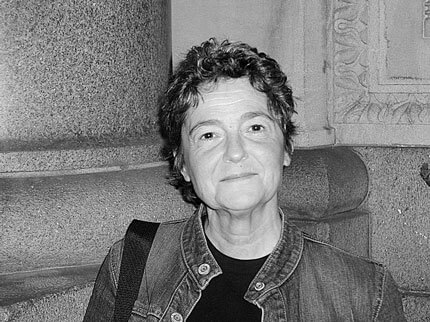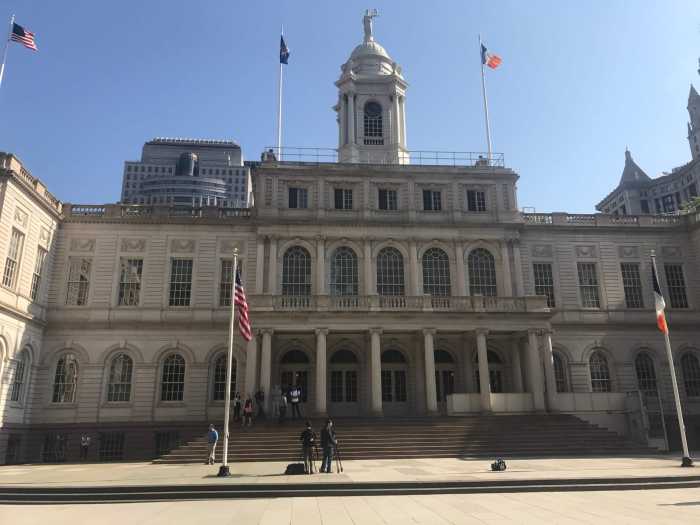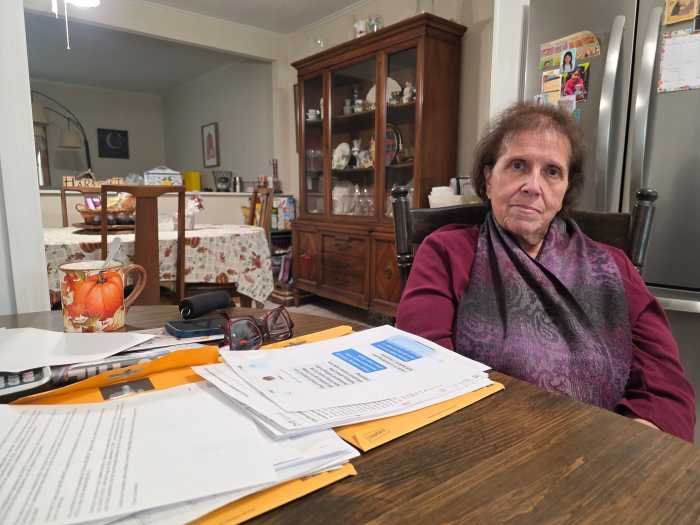Lesbian newspaper editor chronicles growing up the oldest in a Puerto Rican family
I did not intend to cry at the bookstore––none of us did. But when Luisita López Torregrosa read from her achingly wondrous memoir, “The Noise of Infinite Longing” and reached the passage about her mother’s death and the funeral that reunited grown siblings separated after more than a decade—fighting back tears, her voice catching—the prose elicited a reaction from the overflow crowd perhaps not accustomed to showing such emotion in a public setting. The middle-aged man standing off to the side, his swarthy face flushed red, was surely Torregrosa’s only brother, Amaury, raising his hand in quiet solidarity with his sister as she read.
The blistering themes of loss, regret, familial alienation, and painful homecomings did not alone elicit our tears. There was another, more inchoate reason, based on overwhelming pride and joy for the women at the podium.
Her writing deserves a strong response.
Raised in Puerto Rico during the 1950s, Torregrosa freed herself from the strictures of an abusive father, a loving, but selfishly headstrong mother, and a sexist culture that preferred women to be obedient wives rather than independent thinkers. It was a long and grinding journey indeed, from the cobble-stoned plazas of San Juan to the author’s podium at Barnes and Noble Chelsea. Torregrosa, an editor at The New York Times, shared how over three years she carved out precious time during weekends and vacations to finish the memoir, her first book.
“The reading was incredibly successful, beyond anything I could have dreamed,” Torregrosa said in an interview a few days later. “It was a great moment, maybe the greatest moment in my life.”
As for the acutely personal details her book recounts, having sifted through the sands of memory to divulge family strains, unfulfilled promises, and pangs of forbidden love, then reading excerpts before family, colleagues, and total strangers, Torregrosa said she was not fazed.
“I felt very comfortable. I wrote this book, not because I needed to in any therapeutic way, but as a writer, to talk about my life openly,” she said. “It was a great privilege, a great pleasure to see the response in people’s faces.”
Not that her upbringing was all hardship. The eldest of six, Torregrosa was raised as a “princessita” pampered by maids. Her stoic mother, a lawyer, hailed from a prominent family and there was enough money for private schools and party dresses. Her father was a popular doctor, despite being a philanderer and, at times, a mean drunk.
In 1994, Torregrosa’s mother died and the author traveled to Texas for the funeral, reuniting with siblings she had not seen in more than ten years, which she recounts in the book.
“My family is over the moon about this,” said Torregrosa about her book. “Their reaction is positive, supportive, they love it. They totally admire me as a writer, whether I [publish] this or anything else. If my mother were alive, she’d be the proudest one of all. That is one of my regrets, that she’s not here to read it and enjoy whatever success I have.”
But what about airing all those intimate family details?
“I don’t, and they don’t, believe in secrets,” she said. “I think secrets are evil.”
Torregrosa and her family have plenty of reasons to be elated. The book has received exalted acclaim, from Kirkus Reviews to Entertainment Weekly. On April 23, The Times, known for its hypercritical reviews of its editorial staff’s writings, weighed in with a glowing review.
With her richly detailed descriptions, not just of the paint on the window trim of a girlhood house, but of feelings from that period as well, you might say Torregrosa’s heart has a photographic memory. Amazingly, she recalls, at age four, the sting of horror brought by her father’s rum-fueled rages, which were often punctuated by broken glass and beatings with a belt.
Unlike many memoir writers who rely on journals or letters, Torregrosa drew solely on memory. And no, she didn’t interview her siblings to fill in any gaps.
“I didn’t want them to feel they were subjects, or objects, of this book,” she explained.
Yet the author conceded that every detail might not be historically accurate. In the book, she muses, “Each of us composes pictures of what it was and pretties them up or makes them wretched…”
Certainly she admits doing this, in both instances.
“What is absolutely true is what I feel,” she declared. “There is no shading when it comes to my emotions.”
As a young woman, Torregrosa felt like an outsider in her own family, in part due to her same-sex desires.
“I was very fortunate in the mother I had, the sisters, the brother I have––in that order––because I was never made to feel awful. It was my struggle, it wasn’t their struggle.”
However, neither was the young Torregrosa totally accepted. She eventually resented her family’s silence, a lack of open validation, about her homosexuality.
Upholding her dictum for utter honesty, Torregrosa never considered excising her sexuality from the memoir. At the same time, she refused to dwell on it, or transform the book into a “coming out” tell-all.
“I believe this is a universal story,” Torregrosa said. “It’s not a Latino story, it’s not a gay story. We all have families whether broken or perfect––though I doubt that really exists. We all develop differently and we find such variety, such incredible joy and glory.”
At one point, her father, in complete earnestness, offered his shocked lesbian daughter $10,000 to get married, not because the patriarch wished her to go straight, but simply so she would conform to family expectations. Torregrosa was furious.
“He had no clue about my sexuality or about me as a human being,” Torregrosa said with a faint sigh. “I was not close to my father even in childhood. I did not like him.
“In writing this I discovered, or I uncovered, my love for my family,” Torregrosa continued. “I ripped back layers, so many layers, of my life. I also found my absolute belief in myself as a writer. No matter if I get fifty rejections from publishers, I will continue to write.”
A few weeks ago the prodigal daughter returned to Puerto Rico for a book event and was stunned by her lack of nostalgic reminiscence, likening the experience to an artist who finishes a painting.
“I felt it was all out of me,” she said. “I was ready to say goodbye.“
Torregrosa, who has traversed the globe as a journalist, now calls New York, where she’s lived the past seven years, home.
“I feel totally ‘belonging’ here, and that’s difficult for me to feel anywhere,” she said. “I can be whoever I am. I know the city and the city knows me and we are okay together.”
“The Noise of Infinite Longing” deftly articulates all the brilliant facets of her remarkable life experiences. Torregrosa listed them: “First, I am a woman. Second, I am a writer. Third, I am an American. Fourth, I am a Puerto Rican. Fifth, I am gay. I am proud of all my identities.”



































